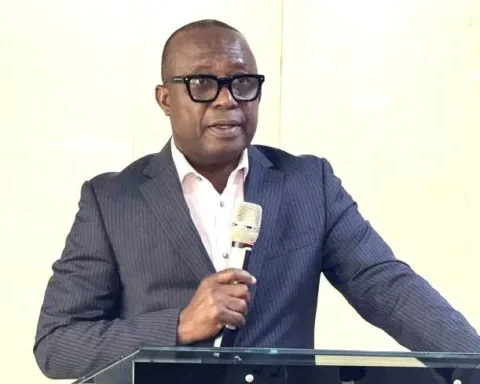The Economic and Financial Crimes Commission (EFCC) has issued a stern warning to lawyers regarding the sources of their payment.
The EFCC has made it clear that lawyers who receive payment from clients using proceeds of corruption will face arrest and prosecution.
EFCC Chairman, Ola Olukoyede, emphasized that lawyers must ensure their payments come from legitimate sources, highlighting that accepting money from corrupt sources not only facilitates corruption but also constitutes aiding and abetting such illegal activities.
Olukoyede made these remarks on Tuesday during a panel discussion on money laundering at the 64th Annual General Conference of the Nigerian Bar Association (NBA) Conference 2024, held in Lagos.
Olukoyede stated that while international conventions may influence the EFCC’s approach, they do not dictate its operations.
He stressed that it is the EFCC’s responsibility to trace the proceeds of crime. If such proceeds are found to be used in payments to lawyers, the agency will take action, including arresting the involved legal professionals.
He said, “As lawyers, we are expected to uphold a position of trust in our professional conduct. While international laws and regulations are important, we must also act in a manner that preserves the integrity of our profession. Doing what is right is crucial, and adherence to proper conduct will help avoid issues like being placed on the grey list.
“It is essential for you to know the legitimacy of your client and the source of your payment. If you are inadvertently involved in criminal activities, you should understand the gravity of the situation. As lawyers, you must maintain your professional integrity and avoid any actions that might undermine your commitment to ethical standards.
“Even though parts of the Money Laundering Act do not directly affect my enforcement of EFCC regulations and other financial laws in Nigeria, it remains my duty to investigate the proceeds of crime. If I trace such proceeds to you, I will question you, and you are obligated to respond.
“Our message is clear: while you are entitled to receive payment for your services, that payment must not be derived from criminal activities.”



























